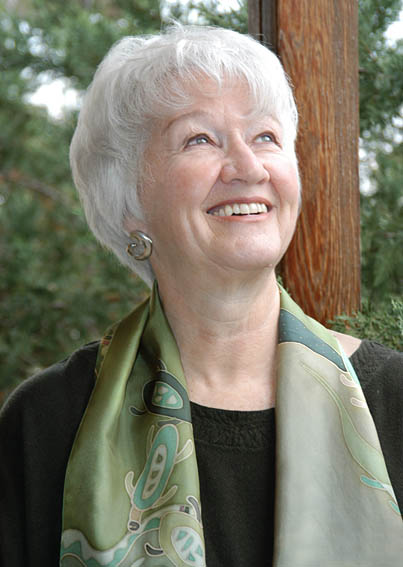


Facts and Statistics on How Happiness Is Contagious
We found that happiness can spread like a virus through social networks. In fact, if your friends’ friends’ friend becomes happy, it significantly increases the chance that you’ll be happy. –Dr. James Fowler, in “Happiness Is… – MSNBC.” 4 Facts & Stats on How Happiness Is Contagious A study by two professors from Harvard and UCSD, Dr. Nicholas Christakis and Dr. James Fowler, found that when a person becomes happy: Next door neighbors have a 34% increased chance of becoming happy. A friend living within one mile has a 25% increased chance of becoming happy. Siblings have a 14% increased chance of becoming happy. A spouse has an 8% change of becoming happy. More on the Happiness Contagion Study… Happiness isn’t a solitary experience; it’s dependent on others. Harvard researchers followed 4,739 people for 20 years, measuring how social networks, siblings, friends and neighbors are affected by the happiness of others. The study controlled factors of age, gender, education and occupation. Researchers found that close physical proximity is essential for happiness to spread. A happy friend who lives within a half-mile makes you 42% more likely to be happy yourself. If that same friend lives two miles away, the impact drops to 22%. Happy siblings make you 14% more likely to be happy, but only if they live within a mile. Happy spouses provide an 8% boost, if they live under the same roof. Previous research has shown that people who are happy have healthier hearts, they have lower levels of stress hormones, and they live longer. –Dr. James Fowler, in “Happiness Is… – MSNBC.” Text in this...
How Important Are Good Relationships Between Workers & Supervisors?
Seeing eye-to-eye about the employee-supervisor relationship is equally, if not more important than the actual quality of the relationship – Fadel Matta, lead investigator on the study and a management researcher in MSU’s Broad College of Business. A new study led by Michigan State University business scholars finds that workers are more motivated if they and their supervisors see eye-to-eye about a bad relationship than if they have different views about their relationship. Past research suggests workers and their bosses often have differing views about the quality of their relationship. Matta and his fellow researchers set out to examine whether that affects actual work engagement, or motivation. It does. According to the MSU-led study of 280 employees and their bosses, motivation suffered when an employee believed he or she had a good relationship with the boss but the boss saw it differently. The finding held when the flip side was true and the boss believed the relationship was good but the subordinate did not. The two were surveyed separately, meaning the boss did not necessarily know how the employee felt about him or her, and vice versa. Interestingly, employee motivation was higher (and the employee was more apt to go above and beyond his or her basic job duties) when the worker and supervisor saw eye-to-eye about the relationship, even when it was poor. “Some people would say it’s better to fake it, but our results indicate that the opposite is true,” said Matta, a doctoral candidate in the Department of Management. “At the end of the day, it’s better for everyone to know where they stand and how...
7 Quotes on Well-Being and Happiness to Inspire Positivity, Altruism and Kindness in Social Interactions
The quotes in this post are all by Martin Seligman, from the lecture “Ideas at the House: Martin Seligman – Well-Being and Happiness,” which can be viewed at the bottom of this post. 1) Traditional Psychotherapy Doesn’t Deal with Achieving Happiness, but with Reducing Suffering Freud and Schopenhauer told us the best we could ever do in life was not to be miserable; that the object of human progress, the object of psychotherapy was to reduce suffering to zero. I’m going to argue today that that’s empirically false, it’s morally insidious, and it’s politically a dead end; that there’s much more to life than zero. 2) 30 Years Ago There Was No Way to Measure Happiness. Today There Is 30 years ago, the word “happiness” was a tremendously vague word. It meant very many different things to different people, and it could not be measured. But now, we have good measures of the elements of well-being. 3) There Is Higher Chance of Making Less Happy People Happier, then Already Happy People Even Happier Technically, we call these states “positive affectivity” and they are bell shaped. That means, right now, 50% of the people in the world are not cheerful and merry. They are not smiling. It is highly genetic. It is about 50% heritable and most importantly, the best we can to with smiling, being merry, being cheerful, is to raise it by about 5-15%. In fact, I spent most of my life working on misery and people would ask me: why didn’t I work on happiness? The reason I didn’t, there was a very influential...![Evolutionary Biologist Divulges The Secret To Human Coexisting [Video]](http://www.mutualresponsibility.org/wp-content/uploads/2014/11/evolutionary-biologist-divulges-the-secret-to-human-coexisting_750x286.png)
Evolutionary Biologist Divulges The Secret To Human Coexisting [Video]
...
